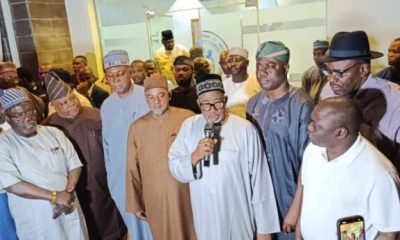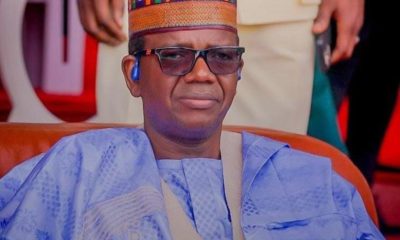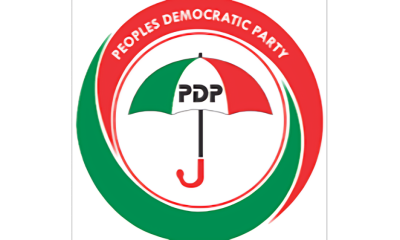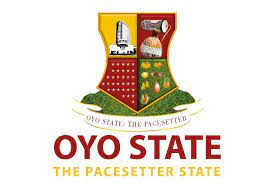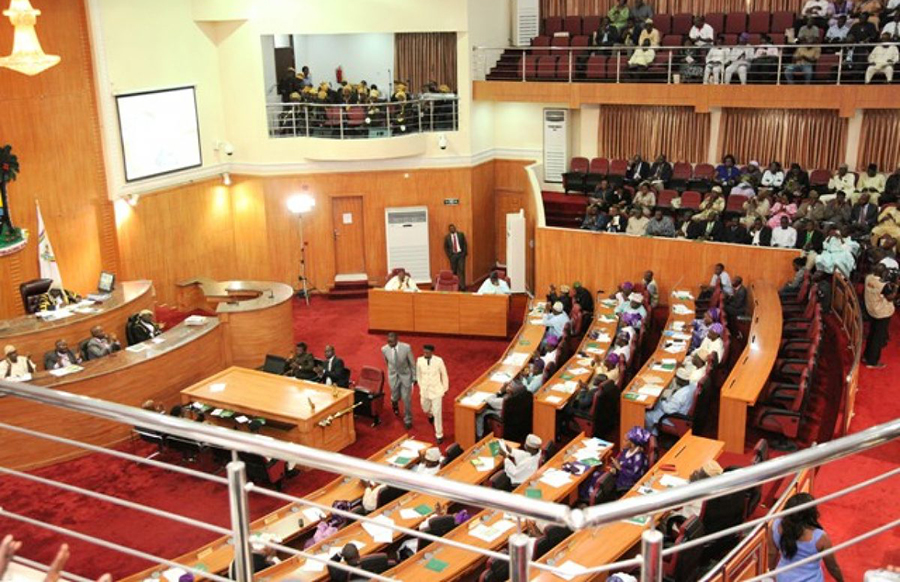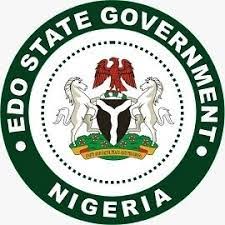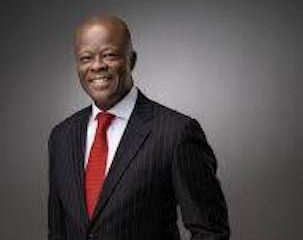OPINION
Why PDP, Nigeria’s Former Ruling Party, Needs Urgent Rebranding
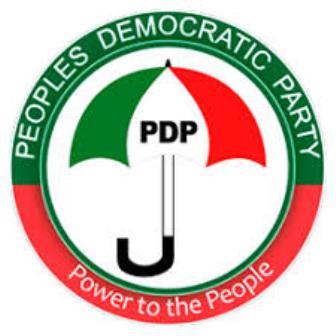
By Akin Adeoya
For Nigeria’s former ruling party, the big question should be: To re-brand or not to re-brand, as it looks hopefully forward to the national elections of 2023.
Sometime in 2019, the beleaguered leadership of Nigeria’s one time ruling party, the PDP, made an announcement that it was “re-branding”.
If you read that story, you will notice the singular emphasis on “name change” as the understanding of what a re-branding effort constitutes. Senator Ike Ekweremadu was penned down to head a committee to “walk the party leadership through the process.”Despite immediate questions regarding the party’s understanding of what re-branding truly means, I thought this was a great idea and silently congratulated whoever gave them the idea and those that agreed to push for the program.
However, if you look at any penny thesaurus for synonyms of re-branding (let’s not even get technical), you will see words like reinvent, remodel, revamp, revitalize, even overhaul.
Visual identity and name change: A tip of the ice-berg
There is a lot of confusion out there; it seems to me, about the very concept of re-branding. The brand design industry has been able to create the impression that re-branding is mostly about shapes, colors and forms. Basically identity issues.
Nothing could be further from the truth. I remember sitting through a lecture on branding delivered by one of Nigeria’s leading brand strategists in one of the M2 Brandwagon events sometime around 2010 where he illustrated his paper with the powerful imagery of an iceberg.
The mighty iceberg sits on the ocean but all you can see is the peak. Imagine if an inexperienced lookout officer on a ship assumes that the peak is all there is to it? Disaster!
The entire project of renaming and identity overhauling which I earlier referred to as shapes, colors and forms development are the mere tip of the iceberg. The real deal is right under, buried in corporate culture. Back to Peter “the rock” Drucker. We will examine some of these items in this essay.
It is therefore very clear that re-branding an organization like PDP must go beyond renaming and redesigns of identity collateral. The party needs a complete overhaul of its corporate practice and values. This is a difficult task given the nature of Nigerian politicians and even politics but there can be motivation to do the right thing if they realize that it’s a sink or swim. A professionally executed re-branding effort can make a significant difference in a major national election.
APC vs PDP: Who owns Corruption?
The jury is out! At the moment, PDP and its archrival, the APC are in deep competition for who has a greater and more authentic claim to the word: “corruption”. In the days when PDP was in power, the APC made it its business to attach that word to PDP in such a way that it has become a noose around the neck of the PDP.
In fact I can conclude that it meets all the criteria listed by Ries and Trout for “owning a word or phrase” in their all time classic: Positioning, the battle for your mind.
Unfortunately, even though the PDP, in the opposition has not been as devastating in the propaganda frontier as the then opposition APC, the current ruling party’s countless goofs and gaffes has helped it to acquire the toga of a truly corrupt party too. Fortunately for them, they are in power and the opposition PDP will have to do more than mouth expletives and elect good looking leaders.
To my surprise, this effort, which promised to mitigate PDP’s image crisis was unfortunately abandoned in the run up to the 2019 elections. The media speculated that perhaps many leaders of the party were not comfortable with the proposed changes. Well, they went on to lose the election for many reasons. The good news is that a new opportunity is presented with the coming national elections. Fortunately they just had a very successful national congress which culminated in the election of the charismatic and experienced Senator Iyorchia Ayu. Party leaders must be told that the days of depending on extraneous activities to win elections are fast disappearing and the time has come to build parties that not only engage citizens but involve them in envisioning the hoped for future. A re-branding process can make this happen. Some of the key actions points to give the party a new, more acceptable image and to prepare it for possible. Victory is articulated in the following six imperatives.
1. PDP needs to review its name and come up with a name that refreshes its reputation. This will create some challenges in a situation where many members are not literate and reside in the rural areas. The challenge is not insurmountable. The gains far outweigh the troubles. The thoughts and ideas associated with the party have nothing to do with good governance, leadership and prosperity.
2. Have you ever asked yourself why the rallying cry of PDP is “PDP power?” What exactly is that supposed to communicate? That they are the party of power or the party in power? If so, how relevant does it still stand now that they have been out of power for many years? What emotions does it inspire in old and especially new members? What hope does it kindle in the hearts of the teeming millions who follow the party? The party needs to drop this antiquated rallying cry and invent a call to arms that inspires and projects members to a future expected.
3. PDP must overhaul its internal processes and systems including carrying out reforms in support of internal democracy. They must demonstrate to Nigerians that the new PDP, whatever new name it will be called, means business and is no longer willing to embrace impunity.
4. This is the time to compile the achievements of PDP governors and local government chieftains (Those who did well) and celebrate those achievements to high heavens. The job must not be left to the governors or LG chairmen alone; it must be coordinated by the national secretariat and should always demonstrate what the party has achieved in places where it holds sway.
5. The re-branding should set forth a strategy for communication that is agenda setting and predictive rather than reactive. A party in opposition, in the tradition of the inimitable Obafemi Awolowo, can always step forward with proposals and warnings about the critical sectors of the economy. They can commission reports, researches and present alternative solutions to poor policies by the government in power. Such a serious minded approach to opposition politics raises the level of the conversation and helps to position the party as a thinking organization with the ideas and capacities to take charge. A serious political institution should demonstrate rigor beyond the banalities of celebrating careless acts of government functionaries that have to significant impact just for the purpose of scoring cheap points.
6. Finally, I think it’s time for PDP to look for a professional event design and execution consultant to design an original event template for ALL their events such that even their event methodology becomes a branding tool for the party. I am sure most Nigerians are not too impressed with the lack of imagination displayed during public outings of all the major parties. They don’t operate with any template or formalized style. There is no guide to speaking which can help brevity and enhance communication. Guides can help speechwriters determine mandatory information that must be in every speech by a party official. You can determine that intros and speeches should be within certain agreed time limits. Event branding methodology will be pre-designed and formally adopted. This will deliver a consistent brand experience in ALL party events. Members begin to have a more emotional connection with the party because of the consistent branding, messaging and discipline.
OPINION
This Trial of Oloyede
By Tunde Akanni
It’s been traumatic for my entire family since that video started making the rounds. I sneaked a slight view… It’s our trial. It’s my trial. Oloyede is genuine. He is most sincere. He is modestly so, as well. For us, however, Allah knows best.
I was with a trader in the afternoon of what I considered a dark Wednesday, the 14th of May. “Se bi won ni JAMB o get mo bayi…”. I had to cut in immediately. Which JAMB? “Madam, that’s one person I will vouch, and vouch for…zero tolerance for corruption. Absolutely responsible with a high level of consciousness for the good of others. If certain things went wrong at JAMB, I agree it’s his responsibility to carry all pleasant and other burdens but just know that the bad side of the operations may as well be sabotage. I have absolute trust in that man. Ask my own colleagues about me, but Oloyede is my own hero, somebody I have known for more than 40 years…”This is by no means a reductionist disposition to the tragedy induced by the so-called computer glitch. May the Almighty God in His infinite mercy console the parents of the candidate reported to have committed suicide. May God strengthen them to survive this gloomy phase of their lives and sustain them to reap bountiful compensation that will endure in their lives. It’s hard, so hard to pull tragedies of this magnitude. I personally feel for these parents.The said computer glitch, may we never fall victim to it. Those who work for big organisations requiring a large layout of ICT operations know what I’m talking about. Rather than being ‘solutional’, IT facilities can be unimaginably problematic sometimes, yet indispensable in this civilisational dispensation. This is not doubting deliberate sabotage, as may have happened in the case of JAMB. I’ve been part of Oloyede’s JAMB journey to attest to his commitment to offer his best for the otherwise sinking board.Far from being cosmetically exhibitionist, the Oloyede-led JAMB team, led by the Education minister, Tunji Alausa, went round the critical facilities of JAMB during the just concluded examination. Alausa saw, firsthand, like never before elsewhere in this country, how far JAMB had gone in its strive for transparency and the real-time monitoring of the conduct of examinations nationwide. Alausa, beyond being in awe, sought to make the JAMB effect spread immediately to other examination bodies.No be dem say, same day, the WAEC team came to JAMB and made it into the situation room, which was my own duty post. The NECO team followed suit afterwards, both duly led around by the sturdy lead IT consultant who’s been reliably there from Oloyede’s assumption of duty, Damilola Bamiro. Far richer, given that they charge more for their exams, the duo of WAEC and NECO were suddenly mandated to understudy the examination sector leader in Africa that JAMB has become over time.The staff of both WAEC and NECO suddenly had to undertake a professional excursion led through all the real time monitoring screens and other digital facilities. It was obvious they marvelled at what they saw, revealing a functional leader-subordinate synergy manifest with trendy output that the world can see and learn from.But that may even seem like the tip of the iceberg of the output of the hard work and commitment of the nation’s foremost icon of integrity in public service. A series of far more seemingly serious strides had been accomplished by Oloyede at JAMB. As a focused scholar, he keeps ensuring that every bit of the experience of the Board is treasured as worthy data to guide future actions and even subjects for further research.Not even the agencies dedicated to emergency matters in Nigeria could have been as prompt as the Oloyede management on this ugly glitch saga. Once the complainants began ventilating into the public space, JAMB rose to the challenge without any predictably traditional arrogant stance of government is always right. I was aware that a particularly strident public critic and a former students’ leader at Obafemi Awolowo University, Adeola Soetan commended the spokesperson for JAMB for the excellent handling of public complaints.Promptly, an independent team of investigators was set up to unravel the mystery leading to the rather depressing situation that now confronts us. The team, drawn from assorted but technically relevant constituencies, has found out that no fewer than 165 centres of over 800 examination centres nationwide were affected.Obviously well prepared for whatever the outcome may turn out to be, he braced up to the challenge to embrace the surrender value to tell it to the world as it is. This trial is for all of us who believe and trust Oloyede. I am in this group. So much so that his public cry infected me…It was a patriot’s cry for his beloved country. Like me, a former Law don at LASU, Dr Kilani wasn’t any less affected as demonstrated in a quick note to me: “I write to associate myself with the pain, sorrow and emotion of our own Professor Oloyede. I could not hold my tears seeing him cry. May Almighty Allah see him through. May we all not be put to shame…”But then came a soothing message from Gbade Osunsoko, my cousin: “…He will come out of this much stronger because Nigerians will trust him far better than a number of our leaders.. A man that makes mistakes happens under him and takes responsibility – it’s a big deal in Nigeria.”With Oloyede, young Nigerians with challenges regarding sight are no longer left to moan their fate endlessly, with adequate provision for their inclusion in the UTME. How many of our public facilities are this inclusion conscious as stipulated by SDGs? How come a legacy built through almost a decade at the very best cost ever possible will be made to crumble when the game changer leader remains ever modest? JAMB has steadily risen through thick and thin to accomplish its tasks to the admiration of stakeholders, nationally and internationally, under Oloyede. Both NNPC and the Nigeria Police, being beneficiaries, can attest to the current competence of JAMB. How many other numerous stakeholders nationwide never deemed to have any relevance to JAMB before Oloyede but have since become critical, if not indispensable players?But why does this sudden saddening encounter threaten our joy of service without blemish? Why this unforeseen truncation of a good story, so intentional, coming from Africa? Whodunnit? Surely the truth shall come out for the world to perceive and assess and get to appreciate the efforts and the quantum of commitment appropriated to the JAMB excellence project driven by Oloyede.One cannot but be deeply concerned. Before the very eyes of a few of us carefully selected to give support from our respective professional perspectives from the very beginning, Professor Oloyede’s concern for genuine growth and development was real. It is still real and increasingly so, as a matter of fact. Indeed, inimitable. It shall be well.Tunde Akanni is a professor of Journalism and Development Communications at the Lagos State University, LASU. Follow him on X:@AkintundeAkanniOPINION
Democracy, Institutions, and the Rule of Law

By Kator Ifyalem
Democracy, often hailed as the cornerstone of modern governance, is a system that empowers citizens to participate in the decision-making processes that shape their lives. However, the mere existence of elections is not enough to ensure a fair, just, and prosperous society.
Without robust institutions, the rule of law, and ingrained values, democracy can become a hollow shell, susceptible to corruption, manipulation, and eventual collapse. At its core, democracy is built on the principle that power resides with the people. This power is exercised through fair elections, where citizens choose representatives to govern on their behalf. The effectiveness of this system relies heavily on the strength of supporting institutions, adherence to the rule of law, and shared values that guide societal behaviour.Institutions serve as the backbone of a democratic society, translating the will of the people into action. These include governmental bodies such as the legislature, executive, and judiciary, as well as independent organizations like electoral commissions, anti-corruption agencies, and human rights commissions. These institutions provide checks and balances, ensuring that no single entity or individual can accumulate too much power. They create a framework for accountability, transparency, and effective governance.An independent judiciary is crucial for upholding the constitution and protecting individual rights. Without it, laws can be manipulated or ignored by those in power, leading to tyranny. Similarly, a free and independent media acts as a watchdog, informing citizens and holding those in power accountable. When media institutions are weakened or controlled by vested interests, the flow of information is compromised, and citizens are unable to make informed decisions.The rule of law is another critical component of a functioning democracy. It ensures that all citizens, regardless of their status or position, are subject to the same laws and legal processes. This principle is fundamental to creating a fair and just society where everyone’s rights are protected. A robust legal framework, consistently and fairly enforced, provides the predictability and security necessary for social and economic development. It protects property rights, enforces contracts, and creates an environment conducive to investment and growth.Moreover, the rule of law is essential for protecting minority rights and preventing the tyranny of the majority. In a true democracy, the rights of all citizens must be respected, even if they are not part of the ruling majority. This protection is enshrined in laws and enforced through effective legal institutions.Values form the third pillar of an effective democracy. These shared beliefs and principles guide societal behaviour and inform policy-making. Democratic values include respect for human rights, tolerance of diversity, commitment to justice, and belief in the equality of all citizens. When these values are deeply ingrained, they act as a safeguard against authoritarian tendencies and help preserve the integrity of democratic institutions.For instance, a healthy democracy can be likened to a three-legged stool, where institutions, the rule of law, and democratic values form the legs. Just as a stool cannot stand stably without all three legs being strong and balanced, a democracy cannot function effectively if any of these elements is weak or missing. In Nigeria’s case, we’ve seen how weaknesses in one area, such as institutional challenges in election management, can put stress on the other legs, requiring the judiciary (rule of law) and civil society (democratic values) to bear more weight to maintain stability.Education plays a crucial role in instilling these values. A well-informed citizenry, aware of their rights and responsibilities, is better equipped to participate meaningfully in the democratic process. Civic education programs that teach the principles of democracy, the importance of institutions, and the value of the rule of law are essential for creating engaged and responsible citizens.The interplay between institutions, the rule of law, and values creates a self-reinforcing cycle that strengthens democracy. However, this cycle can also work in reverse. Weak institutions often lead to a breakdown in the rule of law, eroding democratic values and further weakening the system. This negative spiral will ultimately lead to the collapse of governance, even if the outward trappings of democracy remain.To prevent this decline, concerted effort is required on multiple fronts. Institutional capacity must be built and maintained through adequate funding, training, and support. The rule of law must be consistently enforced, with mechanisms in place to address corruption and abuse of power. This requires not only strong legal frameworks but also a commitment to their implementation.International cooperation also plays a role in strengthening democracy. Countries learn from each other’s experiences, share best practices, and provide support for development. However, it’s crucial to recognize that democracy cannot be imposed from outside; it must be nurtured from within.True democracy requires more than just the act of voting; it demands a comprehensive system of governance that respects the rights of all citizens, upholds justice, and promotes the common good. Strengthening these fundamental pillars (institutions, the rule of law, and values), is crucial in building more resilient, effective, and truly representative democracies that serve the needs of all citizens and contribute to global stability and prosperity. Where does Nigeria as a nation stand on this scale?OPINION
Reshaping Nigeria’s Student Loans for Inclusive Access

By Tosin Kolade
In June 2023, President Bola Tinubu signed the Student Loan (Access to Higher Education) Act into law, marking an important step forward in the country’s approach to financing tertiary education.The initiative was designed to provide interest-free loans to students in higher institutions, thereby expanding access to education for financially disadvantaged youth.
However, nearly two years on, the scheme’s implementation remains burdened by challenges, prompting growing concern and debate among stakeholders. In response to criticism of the original law, the Federal Government repealed and re-enacted the Act in April 2024.The revised legislation established the Nigerian Education Loan Fund (NELFUND) as a corporate entity responsible for managing and disbursing the loans.Notably, the amended version eliminated restrictive eligibility criteria such as income thresholds and guarantor requirements.It also extended the scheme’s coverage to include students enrolled in government-accredited vocational training centres.To streamline access, the application process was simplified, requiring only a valid National Identification Number (NIN) and Bank Verification Number (BVN).Hence, all submissions were made via the NELFUND portal.In spite of these improvements, the scheme has continued to attract criticism.One of its most vocal opponents is the Academic Staff Union of Universities (ASUU).In a recent interview with a national daily, Dr Mwolwus Jurbe, Chairman of ASUU’s University of Jos chapter, outlined the initiative as “fundamentally flawed”.He argued that the scheme was unlikely to benefit its target groups, especially students from low-income families.“The scheme is pushing education out of the reach of the common man,” he said.Jurbe said that, amid high unemployment rates and soaring tuition fees, expecting repayments from indigent students was unrealistic.ASUU also raised alarms over reports that TETFund allocations might be redirected to fund NELFUND.The body warned that dismantling a functional funding mechanism in favour of an untested alternative could jeopardise the future of tertiary education in Nigeria.Meanwhile, the National Association of Nigerian Students (NANS), while generally supportive, has also expressed reservations.The association acknowledged the potential of the scheme to reduce dropout rates, but emphasised that the absence of scholarships or grants rendered it incomplete.NANS President, Comrade Olushola Ladoja, condemned the alleged mismanagement of NELFUND, calling for the dismissal of implicated officials and the publication of the 51 tertiary institutions reportedly involved.“Any vice-chancellor, rector or provost found culpable in the mismanagement of student loans must be removed from office.“Their actions sabotage the Federal Government’s effort to make education accessible to all,’’ Ladoja said.He urged Tinubu to probe the reported diversion of N71.2 billion and criticised NELFUND for excluding the national student leadership from key stakeholder engagements.Additionally, NANS called on the EFCC and ICPC to investigate the matter and advocated for a five-year post-NYSC loan repayment grace period, citing the employment difficulties faced by many recent graduates.Civil society groups have also raised concerns.The Education Rights Campaign (ERC) described the initiative as “badly thought-out, ill-conceived and fundamentally unworkable”.Hassan Soweto, National Coordinator of the ERC, lamented repeated delays in the loan rollout, calling it evidence of poor planning and political inertia.“It is a national embarrassment that almost a year after the law was signed, students are still waiting for funds,” he said.Worthy on note, trust in the scheme further eroded in August 2024 when it was revealed that no tertiary institution in the South-East had been included in the first phase of disbursements.Reacting, the Concerned Igbo Stakeholders Forum (CISF), led by Chukwuma Okenwa, condemned the omission as a deliberate act of marginalisation.Okenwa argued that excluding an entire geopolitical zone from a national programme violated the federal character principle.Although NELFUND claimed South-East schools had failed to respond to verification notices, the CISF rejected this explanation, insisting that at least one compliant institution should have been selected.Similarly, the Corporate Accountability and Public Participation Africa (CAPPA) expressed concern over NELFUND’s plan to limit eligibility to students in “high-demand” disciplines.Zikora Ibeh, CAPPA’s Senior Programme Manager, warned that the policy could marginalise students in the humanities, arts, and social sciences.“This approach risks deepening inequality by denying support to students whose fields may not be seen as immediately profitable but are crucial to national development,” she said.Also, controversy followed the announcement that the EFCC had donated N50 billion in recovered funds to the loan scheme.A Legal expert, Nnaemeka Ejiofor, cautioned that while well-intentioned, the EFCC lacked constitutional authority to reallocate recovered public funds without National Assembly approval.“Such actions, no matter how well-meaning, set a dangerous precedent,” he warned.Meanwhile, fee hikes across federal and state universities have exacerbated the financial burden on students and their families.In some cases, tuition fees have surged by as much as 1,000 per cent.A University of Lagos student, Michelle Njemanze, shared that her tuition rose from N16,000 to N196,000 in a single academic session.For many, the student loan scheme remains a promise yet to be fulfilled.Although the Tinubu administration allocated N200 billion to the scheme in the 2024 budget and appointed banking executive Jim Ovia as chairman of the NELFUND board, disbursement delays continued well into May 2025.In response to growing dissatisfaction, NELFUND recently announced a major overhaul of its application system.NELFUND Chief Executive Officer, Mr Akintunde Sawyerr, recently revealed that the agency was deploying a fully digitised, user-friendly platform to streamline the loan process and eliminate bureaucratic delays.“Education is a right, not a privilege; with this technology-driven model, we are establishing a transparent and efficient system that puts students first,” he said.Sawyerr added that the reforms aligned with Tinubu’s Renewed Hope Agenda, which prioritised educational access and youth empowerment.According to him, more than 320,000 students had already benefited from the scheme, with thousands more undergoing verification as operations scale-up.Looking ahead, NELFUND also plans to integrate its systems with institutional portals across the country.This collaboration aims to enable seamless data exchange, automate student record verification, and speed up loan processing.While recent reforms are encouraging, experts insist that sustained political will, transparency, and inclusive policies are essential to realise the full potential of Nigeria’s student loan scheme.They agree that, in theory, the loan scheme offers a vital opportunity to democratise access to higher education in Nigeria.In practice, however, its rollout has been hindered by legal ambiguities, implementation delays, and regional inequities.If these challenges remain unresolved, experts warn, the scheme may end up widening the very educational gap it was intended to close. (NAN)


